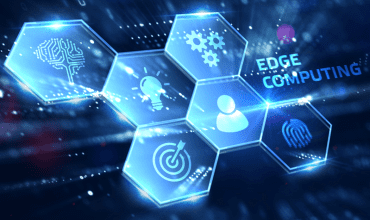
In this week’s real-time analytics news: There were lots of cloud data and AI-related announcements from the Google Cloud Next 2024 conference.
Keeping pace with news and developments in the real-time analytics market can be a daunting task. We want to help by providing a summary of some of the important real-time analytics and AI news items our staff came across this week. Here is our list:
Google made several generative AI-related announcements at its Cloud Next 2024 conference held this week in Las Vegas. The conference drew more than 30,000 attendees and 2,500 partners (according to reports). One of the top news items from the conference was that it is taking Gemini 1.5 Pro into public preview for Cloud customers and developers. Gemini 1.5 Pro can run 1 million tokens of information consistently, opening up new possibilities for enterprises to create, discover, and build using AI.
The company also introduced new Google Axion Processors. These are Google’s first custom Arm-based CPUs designed for the data center. According to Google, Axion delivers industry-leading performance and energy efficiency and will be available to Google Cloud customers later this year.
In addition, NVIDIA and Google Cloud announced a new collaboration to help startups around the world accelerate the creation of generative AI applications and services. The announcement brings together the NVIDIA Inception program for startups and the Google for Startups Cloud Program to widen access to cloud credits, go-to-market support, and technical expertise to help startups deliver value to customers faster.
Other conference-related announcements by partners included:
Alteryx announced an expanded partnership with Google to launch Alteryx Analytics Cloud on Google Cloud, alongside expanded AI capabilities with Google Cloud’s Gemini models that will extend the capabilities of Alteryx AiDIN. The new integration with Alteryx Analytics Cloud will enable customers to have more control and flexibility over where their data is stored and processed. Additionally, with Alteryx AiDIN’s integration of Gemini, Alteryx, and Google are delivering AI functionality that lowers the threshold for new users to get started on their analytics journey.
Automation Anywhere announced an expanded partnership with Google Cloud to leverage the combined power of generative AI and its own specialized, generative AI automation models. Automation Anywhere is utilizing Google Cloud’s Gemini models and Vertex AI platform to launch customizable new generative AI-powered solutions, unlocking new value quickly for enterprises. While other automation vendors run their on-prem software on a virtual machine, Automation Anywhere has well over 300 enterprise customers running process automations natively on Google Cloud.
CrateDB announced its availability on Google Cloud Marketplace. The key benefits of the availability in the marketplace include seamless integration, scalability, and real-time performance. The availability is more than just a technical integration, and it also provides businesses with the tools they need to drive real-time insights from their data.
Chronosphere announced that it has partnered with Google Cloud to bring together cloud-native services and cloud-native observability. The combination allows teams to transform their observability data based on need, context, and utility—all delivered on Google Cloud. Additionally, the new Google Cloud Personalized Service Health integration enables customers to ingest events impacting Google Cloud product and services relevant to their projects into Chronosphere.
DataRobot announced new integrations and accelerators with Google’s Gemini models, enabling organizations to jumpstart AI solutions and deliver immediate impact. Building on the previously announced Google Cloud partnership, users can now have access to LLM blueprint strategies for 150+ models in Model Garden, including Gemini models and new solution accelerators that now include Mistral 7N and Llama 2.
DataStax announced integrations with API extensions to Google Cloud’s Vertex AI Extension and Vertex AI Search, offering developers an easier time leveraging their own data. DataStax Astra DB integrations with Vertex AI Extensions and Vertex AI Search, as well as support for Vertex AI in RAGStack, provides JavaScript, Python, C#, and any other full stack developers to leverage their data seamlessly with ease-of-use into compelling generative AI and RAG applications, getting the most out of the Google Cloud AI ecosystem.
Denodo announced a new integration of the Denodo Platform with Google Cloud’s Vertex AI as part of its partnership. Powered by data virtualization, the Denodo Platform will work with Google Cloud to empower joint customers to drive innovative solutions by combining advanced logical data management capabilities with cutting-edge generative AI services while providing access to state-of-the-art large language models (LLM).
Informatica announced new solutions, product innovations, and an expanded partnership with Google Cloud. To start, Informatica launched its Master Data Management (MDM) Extension for Google Cloud BigQuery, making it easier and faster to get trusted MDM data that can be leveraged for analytics and generative AI applications across industries such as retail, financial services, and healthcare. The company also showcased a new end-to-end solution based on the MDM Extension to enable customers to develop enterprise-grade GenAI applications with Informatica’s AI-powered Intelligent Data Management Cloud (IDMC), Google Vertex AI platform, BigQuery, and Gemini models LLMs.
ManageEngine, a division of Zoho Corp., announced that CloudSpend, its cloud cost management tool, has extended its support to Google Cloud Platform (GCP). By expanding its cost optimization services to GCP, following AWS and Microsoft Azure, CloudSpend now covers the three largest public cloud computing platforms, enabling enterprises with a multi-cloud setup to streamline their operational expenses. Furthermore, CloudSpend has been enhanced with a cost anomaly detection capability, which helps monitor and manage cost blind spots across multiple cloud service providers.
Neo4j has announced new native integrations with Google Cloud that speed up Generative AI application development and deployment across several crucial stages. The results solve a problem for enterprises that struggle with complexity and hallucinations when building and deploying successful GenAI applications requiring real-time, contextually rich data and accurate, explainable results. The integrations are available now.
NetApp announced an expansion of its partnership with Google Cloud to make it easier for organizations to leverage their data for generative AI (GenAI) and other hybrid cloud workloads. Specifically, the two companies announced the Flex service level for Google Cloud NetApp Volumes, which supports storage volumes of nearly any size. NetApp is also releasing a preview of its GenAI toolkit reference architecture for retrieval-augmented generation (RAG) operations using the Google Cloud Vertex AI platform.
VAST Data announced the availability of the VAST Data Platform with Google Cloud. By extending the VAST Data Platform’s global namespace with Google Cloud, organizations have the flexibility to deploy multi-node VAST Clusters either independently with Google Cloud or in conjunction with on-premises VAST clusters, offering the full suite of platform features to support both hybrid and native Google Cloud environments.
Real-time analytics news in brief
Anaconda and Teradata announced a new integration to bring widely used Python and R packages to Teradata VantageCloud through the Anaconda Repository. The integration with ClearScape Analytics is designed to provide enterprises with the ability to deploy large-scale data science, AI/ML, and generative AI use cases that can cost-effectively deliver value for the enterprise.
Astronomer announced that the Apache Airflow project continues to move forward with enhancements to meet changing data ecosystem needs. To that end, it released Airflow 2.9, the first minor release of the year and the fourth in only the past 12 months. Airflow 2.9 builds on the trends and requests in the broader community, including enhancements to data-aware scheduling and dynamic task mapping for use cases, including ETL and MLOps. The new release contains more than 35 new features, over 70 improvements, and over 30 bug fixes.
Buildkite Pty Ltd (Buildkite) announced that it has signed a multi-year strategic collaboration agreement (SCA) with Amazon Web Services (AWS). Under the agreement, AWS and Buildkite will collaborate to market and sell Buildkite’s DevOps platform to customers across North America, EMEA, and APAC. Buildkite will also launch its DevOps platform on the AWS Marketplace.
Census announced that Canva now delivers personalized campaigns at scale and operationalizes ML propensity models using its Composable Customer Data Platform (CDP) with Census in the Snowflake Marketing Data Cloud. The solution is a Composable CDP, leveraging Census and Snowflake. This approach helps Canva’s marketers unlock a unified Customer 360 in the Marketing Data Cloud, so they no longer need to go to 10 places to understand their users. Canva’s Composable CDP transforms existing data infrastructure into a growth engine for marketing teams.
Cohere announced Command R+, its scalable large language model (LLM), which is purpose-built to excel at real-world enterprise use cases. Command R+ joins the company’s R-series of LLMs. Command R+ features a 128k-token context window and offers advanced Retrieval Augmented Generation (RAG) with citation to reduce hallucinations, multilingual coverage in 10 key languages to support global business operations, and tool Use to automate sophisticated business processes.
Databricks announced the Data Intelligence Platform for Energy, a unified platform bringing the power of AI to the energy sector. Built on an open lakehouse architecture, Databricks’ Data Intelligence Platform for Energy enables enterprises to harness vast streams of energy data and develop generative AI applications without sacrificing data privacy or their confidential IP.
DataChat released DataChat 2.0, the next generation of its DataChat platform. The new release enables enterprise users to ask questions of their data in plain English via either a chat-based conversation, a spreadsheet interface, or a combination of the two, and receive straightforward answers, insights, and visualizations, as well as detailed information on how those answers were generated.
Dremio unveiled new capabilities that simplify the process of building and managing an Apache Iceberg data lakehouse. The latest version, which is available immediately, reduces tedious, manual tasks critical to data management with new capabilities that include ingestion, processing, and migration. By automating Iceberg management processes, Dremio reduces total cost of ownership (TCO), enhances data team productivity, and improves overall time-to-insight.
GlobalLogic, a Hitachi group company, announced a Platform-of-Platforms architecture designed to support the deployment of enterprise-grade artificial intelligence (AI). Specifically, GlobalLogic’s AI Platform-of-Platforms architecture addresses critical needs related to observability, security, governance, and consumption. It makes it possible to integrate best-of-breed models, algorithms, and solutions, whether deployed in the cloud or on-premises. It also includes accelerators for rapidly deploying some of the most sought-after use cases.
Ikigai Labs announced that its AI platform is now available in AWS Marketplace. The Ikigai platform provides AWS customers with the ability to streamline the purchase and management of Ikigai Labs’ AI platform and solutions in their AWS Marketplace account. As a result, AWS customers will now have seamless access to a powerful platform driving predictive and actionable insights in their trusted AWS Marketplace.
SAP Emarsys announced its AI Product Finder, a new tool that helps brands recommend products and personalize their customer experiences. Specifically, the AI Product Finder enables an intuitive search of a brand’s extensive product catalog, allowing marketers and retailers to quickly locate and incorporate the most suitable products into their campaigns. Provided as an out-of-the-box solution for email marketing campaigns, the new Product Finder is designed to revolutionize how marketers find and recommend relevant products.
SQream announced that it has launched an ‘in-database model training’ feature, to enable use of their solution by customers as both an integrated analytics platform as well as a machine learning model trainer. The expanded offering allows users to enjoy the numerous benefits of in-database model training. Using the power of SQL accelerated by GPUs to train models directly within the database, SQream maximizes efficiency in machine learning operations and frees up organizations’ valuable resources.
Starburst announced its fully managed Icehouse implementation on Starburst’s multi-cloud data lakehouse service, Galaxy. The solution builds on the proven Trino SQL analytics, governance, and auto-scaling capabilities and adds new support for near real-time data ingestion at petabyte-scale into managed Iceberg tables. With Starburst’s Icehouse, customers’ data and development teams can use easy-to-use Structured Query Language (SQL) to prepare and optimize their data and make it available for production use in near real-time. Further, building on the auto-tuning capabilities in Starburst Warp Speed, Starburst’s Icehouse automatically uses the optimized data to improve query performance, enabling interactive use cases without requiring costly expert tuning and code changes.
SymphonyAI announced SensaAI for Sanctions, a platform-agnostic “AI upgrade” for any sanctions solution. SensaAI for Sanctions, delivered via API, is pre-trained and ready to use out-of-the-box. Using an organization’s existing data, SensaAI for Sanctions works in parallel with rules-based systems using AI to power the match process by rationalizing unstructured data, including SWIFT transaction data. It then applies predictive matching models that enable investigators to accurately distinguish the legitimate risks from the resource-consuming false positives.
Syntiant introduced its Syntiant NDP250 Neural Decision Processor (NDP), the company’s most powerful chip that delivers 5x the tensor throughput than its previous generation of deep learning hardware. Built using the Syntiant Core 3 programmable deep learning architecture, the NDP250 is designed for edge AI applications including imaging, speech, and sensor applications in power-constrained devices, such as person detection, object classification, automatic speech recognition (ASR), text to speech (TTS) and motion tracking, among others.
Vultr announced the launch of Vultr Sovereign Cloud and Private Cloud in response to the increased importance of data sovereignty and the growing volumes of enterprise data being generated, stored, and processed in even more locations. Vultr Sovereign Cloud and Private Cloud guarantee data is stored locally, ensuring it is used strictly for its intended purposes and not transferred outside national borders or other in-country parameters without explicit authorization.
If your company has real-time analytics news, send your announcements to ssalamone@rtinsights.com.
In case you missed it, here are our most recent previous weekly real-time analytics news roundups:
- Real-time Analytics News for the Week Ending April 6
- Real-time Analytics News for the Week Ending March 30
- Real-time Analytics News for the Week Ending March 23
- Real-time Analytics News for the Week Ending March 16
- Real-time Analytics News for the Week Ending March 9
- Real-time Analytics News for the Week Ending March 2
- Real-time Analytics News for the Week Ending February 24





























